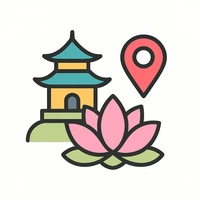Nestled in the mesmerizing karst landscape of Guizhou Province, Bijie stands out with its enchanting natural tapestry featuring the majestic Zhijin Cave, one of the world's largest and most awe-inspiring cave systems, adorned with limestone formations that seem sculpted by an artist's hand. Home to vibrant Miao and Yi cultures, Bijie uniquely blends traditional festivals like the lively Torch Festival with the innovative ecological initiative “Tiaolong Heqing,” transforming barren land into blossoming fields, showcasing humanity's harmonious potential with nature.

Destinations

Travel Tips & Planning

General City Overview
Notable points about Bijie
- Spectacular Karst Landscapes: Bijie is renowned for its dramatic karst topography, which creates stunning landscapes and unique geological formations, like the Zhijin Cave, often described as a natural wonder and one of the largest karst caves in the world.
- Biodiversity Hotspot: Nature enthusiasts will appreciate Bijie's location within the Wumeng Mountain region, which is home to a diverse range of flora and fauna, including rare species not found in other parts of China.
- Cultural Mosaic: This city is culturally rich, with a significant population of ethnic minorities, including the Miao and Yi communities, who contribute to the area's vibrant festivals and traditional arts, offering visitors a chance to experience genuine cultural diversity.
- Pleasant Climate: Unlike many other Chinese cities, Bijie enjoys a mild subtropical highland climate, providing cooler summers and comparatively warmer winters, making it a comfortable destination year-round, particularly appealing to retirees seeking a moderate climate.
- Emerging Economic Hub: Bijie is part of China's broader efforts to develop its western regions, with growing opportunities in sectors like energy and mining. This development brings in both job prospects and a distinct transformation that sets it apart from more developed eastern cities.
- Rich Agricultural Heritage: For those interested in agritourism, Bijie's fertile lands produce a variety of crops, including tea and tobacco, offering unique opportunities to explore rural life and engage with sustainable farming practices.
- Adventure Seeker's Paradise: Outdoor enthusiasts can indulge in a variety of activities such as hiking in the nearby mountains or exploring the city's pristine natural parks, providing escapes for singles and couples looking for adventure or tranquility.
- Less Commercialized Tourism: Unlike major Chinese tourist cities, Bijie offers a more authentic and less commercialized experience. Its tourism industry is still emerging, making it an ideal destination for travelers looking to explore off-the-beaten-path locations.
- Historical Significance: Bijie's history is marked by its role in the Long March, a key event in Chinese revolutionary history. History buffs can visit sites and monuments commemorating these historical events, providing a sense of the city's significant past contributions.
- Modern Infrastructure with a Local Touch: Despite its ongoing development, Bijie retains its local charm, unlike some rapidly modernizing cities in China. It offers modern facilities and amenities while preserving its traditional architecture and slower pace of life, a unique blend attractive to families seeking a balance between modernity and tradition.
Summarized User Reviews
The mountains stretch forever—peaceful, misty, and wild. Not touristy at all, which made it even better.
Beautiful countryside, but getting around without a local friend can be a challenge. No English anywhere.
The Miao village we visited was unforgettable—handmade embroidery, rice wine, and warm smiles all around.
Came for the nature but left disappointed by the lack of infrastructure. The air was fresh though!
I still dream about the sour soup fish and sticky rice cakes. Simple food, full of soul.
Interactive Word Cloud for Bijie

















































































































